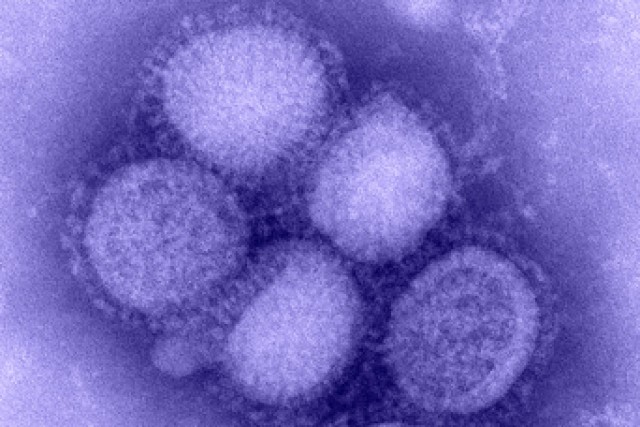"I don't want anybody to be alarmed, but I do want everybody to be prepared," said President Barack Obama, about this year's influenza season.
This year health officials are preparing for the Novel H1N1 flu - initially known as "swine flu" when it was widely publicized last year - in addition to the seasonal flu vaccinations to which military personnel are accustomed.
Seasonal flu and H1N1 flu are different strains of influenza viruses, and vaccination against both is necessary to be fully protected.
"Influenza viruses change from year to year. Protection that develops after a person is infected or is immunized against the circulating viruses of one season does not provide adequate cross-protection when a new influenza strain develops. Vaccination is your best protection against influenza infection," said Lt. Col. Patrick Garman, deputy director of the Military Vaccine Agency.
Flu vaccinations are mandatory for military personnel and civilian health-care personnel who provide direct patient care at military treatment facilities (MTF). It is highly recommended for other people.
Most members of the Army Reserve and National Guard should plan on obtaining vaccinations from their unit during drills. If they are vaccinated by a civilian provider, they must report immunization date, vaccine manufacturer and vaccine lot number to their unit's MEDPROS point of contact at their next drill.
"The seasonal influenza vaccine is already available. Vaccine shipments began in early August. Military treatment facilities began their seasonal influenza vaccine program immediately upon receipt of influenza vaccine to protect individuals at risk from developing influenza or its complications. Our CONUS and OCONUS beneficiaries and retirees who are enrolled in TRICARE can receive their vaccination at their local MTF," said Garman. TRICARE covers the flu vaccination for beneficiaries, as long as it is administered in a doctor's office.
"It is DoD's primary goal to have more than 90 percent of servicemembers vaccinated against seasonal influenza by Dec. 1. The secondary goal is to swiftly complete the seasonal influenza vaccinations and begin preparations for the impending H1N1 vaccination program," said Garman.
The H1N1 vaccine should be available in October. People 10 years of age and older will receive one dose. Those 6 months of age to less than 10 years will require two doses separated by approximately one month. The vaccine will be available as both an injectable or nasally inhaled product, just as seasonal flu vaccine is.
Most servicemembers will receive the injectable H1N1 vaccine. The Defense Department expects to receive enough doses of the vaccines for all military servicemembers and DoD beneficiaries who wish to be vaccinated. To prepare for a possible pandemic disease, DoD has stockpiled antiviral treatments for 8 million people.
In addition to vaccination, people can protect themselves against either strain of flu by:
* Covering the nose and mouth with a tissue when coughing or sneezing, then
throwing the tissue in the trash.
* Washing hands often with soap and water, especially after coughing or sneezing. Alcohol-based hand cleaners also are effective.
* Avoiding touching the eyes, nose or mouth. Germs spread this way.
* Avoiding close contact with people who have flu-like symptoms.
*Staying home if they become sick, until 24 hours after the fever is gone. This will avoid infecting others.
Novel H1N1 influenza so far has been no more severe than seasonal flu. Garman said that experts expect it to be the dominant strain of circulating influenza this year because, until vaccination, most people lack immunity to it. The two diseases cause similar symptoms: fever, sore throat, cough, runny nose, chills, headache, muscle aches and feeling rundown.
Novel H1N1 seems to infect young adults more frequently than seasonal flu, which is most dangerous to the elderly or the very young. Symptoms normally last three to five days, but a person may infect others for several days before showing symptoms and for as much as 10 days after symptoms end.
The nasal mist contains a live virus. "The live-virus vaccine can cause some mild flu-like symptoms, but you cannot get the flu from receiving any influenza vaccine. The injectable influenza vaccine contains pieces of viruses that have been killed, so infection is not possible," said Garman.
"Side effects are usually mild, and can occur soon after vaccination and last for one to two days. Side effects include soreness, redness or swelling at the injection site; fever, weakness, headaches and muscle aches," said Garman. More serious side effects from these vaccines are rare. Anyone who has serious side effects should contact the health-care provider or clinic where the vaccination was administered.
DoD maintains a clearing house of influenza information at http://fhp.osd.mil/aiWatchboard/. Information also is available at www.armymedicine.army.mil, www.vaccines.mil and www.cdc.gov.


Social Sharing